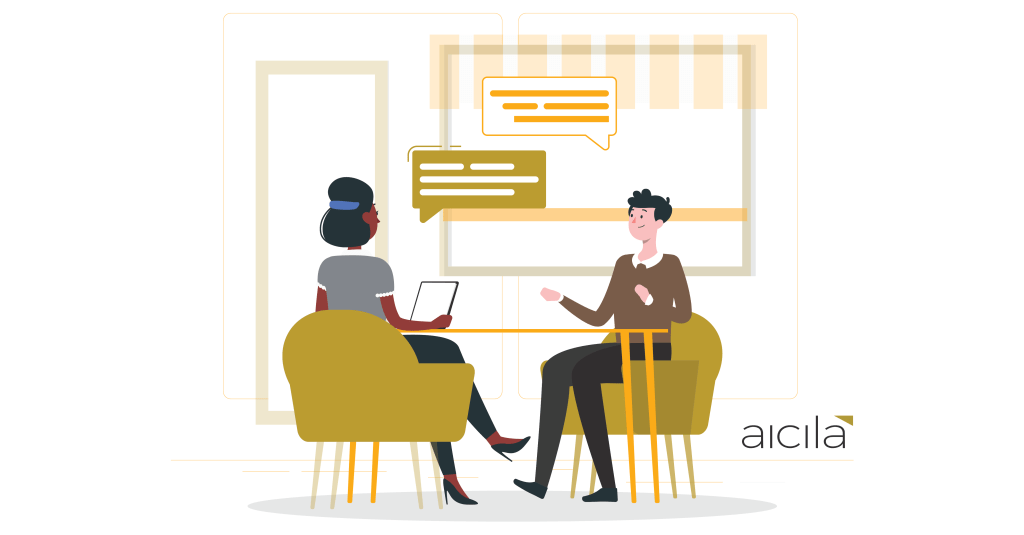Interview Tips

Interviewing successfully is a skill that needs to be learned and cultivated just like any other. At The Aicila Group, our recruitment consultants work with you extensively throughout the whole process to prepare you for each interview stage. The better prepared you are, the more relaxed and comfortable you will be and your performance in the setting will be impressive.
Essentially, the interview process allows you to demonstrate that you are the right candidate for the job. However, HR Managers and hiring managers are also going to be looking for a team and organizational cultural fit from your responses.
The following section offers a few interview tips and suggestions on ways to refine your interview technique.
Do your research
Before the interview, it is a good idea to gather information about the organization that has the position vacant and try to relate your experience to the specific duties of the job opportunity available. You can search for the organization online for more information, and view its website and corporate social media pages for more detailed news and insight into its culture.
Plan ahead
Well before the interview, you should:
- Handle logistics early. Have your clothes, resume, and directions to the interview site ready ahead of time, to avoid any extra stress.
- Make sure you’ll look at the part. Look, act and dress professionally and appropriately.
- Practice interviewing. Practice making eye contact. Pay attention to positive body language and verbal presentation. Try to eliminate verbal fillers, like “uh,” and “um” from your vernacular.
Understand behavioral interviewing
To get to the motivations and working style of a potential employee, interviewers often turn to behavioral interviewing. This is an interviewing style that aims to establish your core competencies relevant to the role, such as teamwork, creativity, innovation, decision-making ability, business awareness, or conflict resolution. The interviewer will be looking for examples of past behavior that demonstrate these competencies. We encourage our candidates to spend some time researching this interview method.
Interview Questions
We get feedback occasionally from our clients, that candidates are not progressing as they failed to actually answer the interview question. If you are not certain about a particular question, do not be afraid to seek clarification. This is a perfect opportunity to showcase your communication skills. Listen, try not to interrupt the questions. Always treat the interview as a two-way discussion and answer questions honestly, and directly and keep to the point. Your Aicila recruitment consultant will give you some formats to help with answering questions prior to your interview. Everyone present will be focusing their attention on you, so remember to answer the question clearly.
To answer questions, the following tips might help:
- Make a list of key attributes required. Are you the sort of person they describe in the job description?
- Memorize examples from your recent roles that demonstrate your strength in each of these key attributes.
- The STAR technique (Situation – Task – Action – Result) can help you do this: Situation– set the scene, give some background information. Task – Tell them what you decided to do. Action – Describe what you actually did. Result – Tell them what happened as a result of your actions.
‘Do you have any questions for us?’
Toward the end of the interview, you will usually be asked if you have any questions of your own. Be confident when asking your questions as it will reflect positively on your overall performance.
Examples include:
- Why is the position available?
- What training and induction will be given?
- What prospects are there for personal and professional development?
- What are the company’s plans for the future?
- What skills and attributes do successful people at your company usually have?
- What do you like best about working at the company?
End of the interview
At the end of your interview, show gratitude and be thankful for the opportunity. This process isn’t just about what an employer can do for you (by giving you a job), it’s mutually beneficial. What are you bringing to the organization? You need to ensure that the impression you leave is of someone who can bring incredible value to the business and will be a strong asset.
Psychometric assessment
Psychometric assessment has become a key component of many recruitment processes, especially in larger organizations. Many assessments explore aspects of workplace behavior, preference, and motivation, as opposed to just mental ability. The principle of assessments is to gain insight into individuals’ personalities, skills, and competencies.
There is a range of tools available that organizations use to explore numeracy, strategic thinking, and the ability to deal with complex verbal challenges, as well as off-the-shelf and bespoke questionnaires. The data is used to build a picture of your overall strengths and aptitude, motivations, aspirations, preferred way of working, and cultural fit.
Tips on taking psychometric assessments:
- Approach the assessment as an opportunity to further demonstrate your strengths.
• Be aware that most assessments involve multiple-choice questions with right and wrong responses. This means they are an objective assessment of you and all other candidates.
• Take a free sample test online to practice.
• When it comes time to take the test, read the instructions carefully.
• They tend to be long, so be well rested, pick a time of day when you are at your best in terms of mental clarity. Be in an environment where you can concentrate fully.

